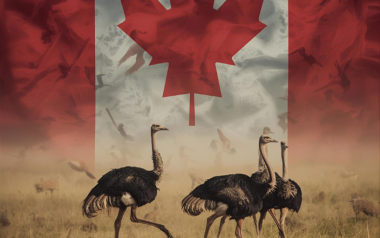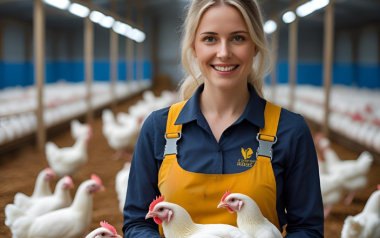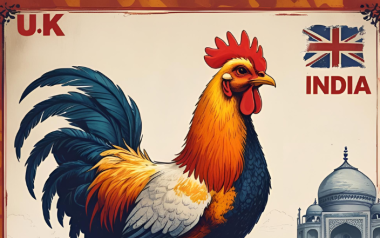11 Aug 2025
US duties hit egg production hub in India’s Tamil Nadu
On August 6, the US slapped another 25% tariff on Indian goods, just weeks after an earlier 25% duty.
Poultry farmers in Namakkal, Tamil Nadu, India’s largest egg producing hub, in June tasted the thrill of breaking into the high value US market, according to a local report.
A trial consignment of 12 million eggs, worth USD 2.3 million, was shipped to the US for the first time, marking what many saw as the beginning of a lucrative new chapter in the town’s export story.
However, the excitement was short-lived. On August 6, the US slapped another 25% tariff on Indian goods, just weeks after an earlier 25% duty.
The move effectively stalled Namakkal’s debut in the US market, leaving the entire shipment stranded with no immediate overseas buyer.
Big egg producer
Namakkal’s poultry industry is no small player. Every single day, the region produces more than 70 million eggs.
The egg production feeds demand within Tamil Nadu and other states, while an additional 8 million eggs are exported daily to the Middle East, a well-established and steady trade route.
The June shipment to the US was a breakthrough. For local poultry farmers, the opportunity meant access to premium pricing. In the domestic market, each egg sells for around USD 0.051.
Transporting them to the US costs roughly USD 0.086 per piece. In US retail, those same eggs could have fetched as much as USD 0.17 each.
Unfortunately, the imposition of steep tariffs has frozen that plan.
“The opportunity to export 12 million eggs to the US was a one-time arrangement, and unfortunately, it coincided with the sudden imposition of tariffs,” said Vangili Subramaniam, President of the Egg Exporters Association.
Managing surplus
The Egg Exporters Association is now working to redirect the stranded stock into the domestic market. With eggs having a limited shelf life, quick action is crucial to prevent wastage.
Mr Subramaniam stressed that while the halted shipment represents a significant financial loss, it is only a fraction of the industry’s daily output.
“We will ensure these eggs are sold domestically,” he said.
Thanks to robust local consumption and strong demand from Middle Eastern buyers, the broader Namakkal poultry sector is unlikely to face a severe economic jolt from this single incident.
However, the disappointment is evident among traders who had hoped to establish a foothold in the US.
Global trade tensions
The US tariffs are part of wider trade tensions affecting Indian exporters across multiple sectors.
For poultry, the US is not a traditional market, but the Namakkal trial shipment was seen as an important diversification step.
Industry experts warn that if such tariffs remain in place, Indian eggs will be priced out of competitiveness in the US.
Eyes on traditional markets
For now, exporters are turning their attention back to their proven Middle East networks, where daily shipments continue without disruption.
However, the episode has served as a reminder of the volatility of global trade, where sudden policy changes can upend months of preparation.
Namakkal’s farmers and traders are keeping a close watch on developments. If tariff barriers ease, they say they will be ready to restart negotiations and reopen that door to the US.








































